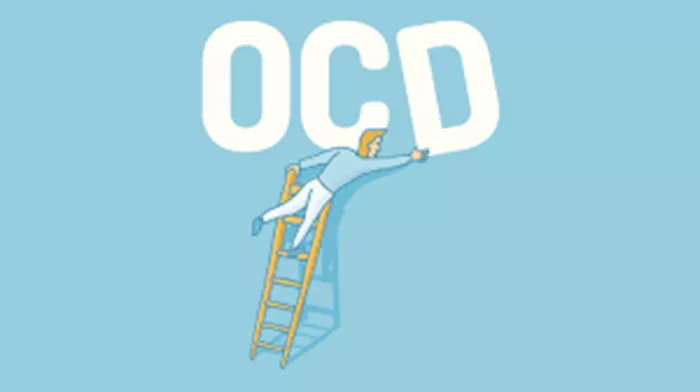Obsessive-Compulsive Disorder (OCD) is a mental health condition that affects millions of people worldwide. It can lead to persistent, intrusive thoughts (obsessions) and repetitive behaviors (compulsions) aimed at reducing anxiety caused by these thoughts. While OCD can be overwhelming, there are effective ways to manage and reduce these obsessive thoughts. In this article, we will explore various strategies to help you control your OCD symptoms and improve your quality of life.
Understanding OCD and Its Effects
What is OCD?
OCD is a mental health disorder characterized by unwanted and distressing thoughts or obsessions that lead to repetitive actions or compulsions. People with OCD often feel trapped in a cycle of irrational thoughts that they cannot stop, leading them to perform certain rituals or behaviors in an attempt to alleviate their anxiety.
The Impact of OCD on Daily Life
OCD can have a significant impact on a person’s daily life. It can interfere with work, relationships, and personal well-being. The constant need to engage in compulsive behaviors or the persistent cycle of intrusive thoughts can be exhausting and distressing.
Practical Strategies to Manage OCD Thoughts
1. Cognitive Behavioral Therapy (CBT)
Cognitive Behavioral Therapy (CBT) is one of the most effective treatments for OCD. CBT helps individuals identify and challenge their irrational thoughts and develop healthier coping strategies. Through CBT, people learn how to resist the urge to engage in compulsive behaviors and reframe their thinking patterns to reduce anxiety.
2. Exposure and Response Prevention (ERP)
Exposure and Response Prevention (ERP) is a specific type of CBT that focuses on exposing individuals to situations that trigger their OCD symptoms while preventing the compulsive behaviors they typically use to alleviate anxiety. Over time, ERP helps individuals learn to tolerate anxiety without engaging in rituals or compulsions, leading to a decrease in obsessive thoughts.
3. Mindfulness and Meditation
Mindfulness techniques, such as meditation and deep breathing, can help individuals with OCD manage their thoughts. By focusing on the present moment and accepting thoughts without judgment, mindfulness practices can reduce the power of intrusive thoughts. Regular mindfulness exercises can help you gain better control over your mind and reduce the intensity of obsessive thoughts.
4. Medication
In some cases, medication may be recommended to help manage OCD symptoms. Selective serotonin reuptake inhibitors (SSRIs) are commonly prescribed to individuals with OCD. These medications help regulate serotonin levels in the brain, which can reduce obsessive thoughts and compulsive behaviors. It’s important to consult a healthcare professional to determine if medication is right for you.
5. Develop Healthy Habits
Maintaining a healthy lifestyle is crucial for managing OCD symptoms. Regular exercise, a balanced diet, and sufficient sleep can all contribute to mental well-being and help regulate the brain’s response to stress. Engaging in activities that promote relaxation and stress relief, such as yoga or journaling, can also be beneficial in reducing anxiety levels.
6. Limit Stress and Triggers
Stress is a significant trigger for OCD symptoms. Identifying and minimizing stressors in your life can help prevent the onset of intrusive thoughts. Whether it’s work-related stress, relationship issues, or other external pressures, finding ways to reduce stress and relax can help alleviate the intensity of OCD symptoms.
How to Support Someone with OCD
1. Be Patient and Understanding
Supporting someone with OCD requires patience and understanding. Individuals with OCD may feel embarrassed or frustrated by their symptoms. It’s important to offer emotional support and create a safe, non-judgmental space for them to express their feelings.
2. Encourage Treatment
If you know someone with OCD, encourage them to seek professional help. Therapy, medication, or a combination of both can be highly effective in managing OCD. Offer to help them find a therapist or accompany them to appointments if they need support.
3. Avoid Enabling Compulsive Behaviors
While it’s important to offer support, it’s also crucial not to enable compulsive behaviors. Enabling can reinforce the cycle of OCD and make it harder for the individual to break free from their rituals. Instead, gently encourage them to practice techniques that reduce compulsions and focus on their recovery.
Conclusion
OCD is a challenging condition, but with the right strategies and support, it’s possible to manage and reduce obsessive thoughts. Cognitive Behavioral Therapy, Exposure and Response Prevention, mindfulness practices, and medication can all play an essential role in helping individuals regain control over their thoughts and behaviors. By developing healthy habits and reducing stress, individuals with OCD can improve their quality of life and lead more fulfilling lives.
FAQs
1. Can OCD be cured?
While there is no definitive cure for OCD, it can be managed effectively with treatment. Cognitive Behavioral Therapy (CBT), particularly Exposure and Response Prevention (ERP), and medication can help individuals reduce their symptoms and live fulfilling lives.
2. How long does it take for therapy to work for OCD?
The length of time it takes for therapy to work varies from person to person. Some individuals may start to notice improvements within a few weeks, while others may require several months of consistent treatment. It’s important to remain patient and committed to the process.
3. Is it possible to stop OCD thoughts without medication?
Yes, it’s possible to manage OCD thoughts without medication. Cognitive Behavioral Therapy (CBT) and mindfulness techniques can be highly effective in reducing obsessive thoughts and compulsive behaviors. However, in some cases, medication may be recommended as part of a comprehensive treatment plan.
Related topics:


